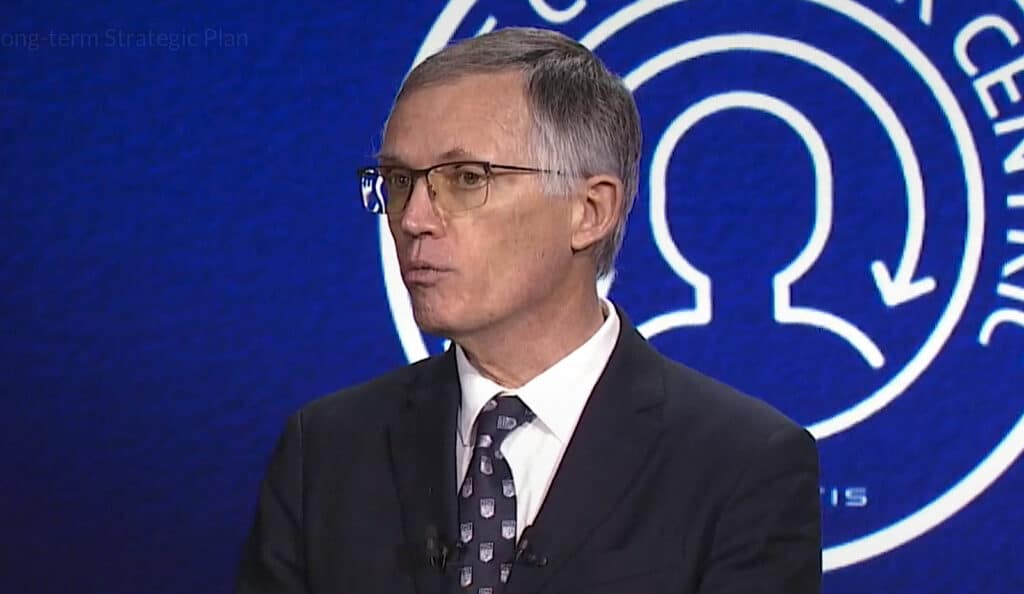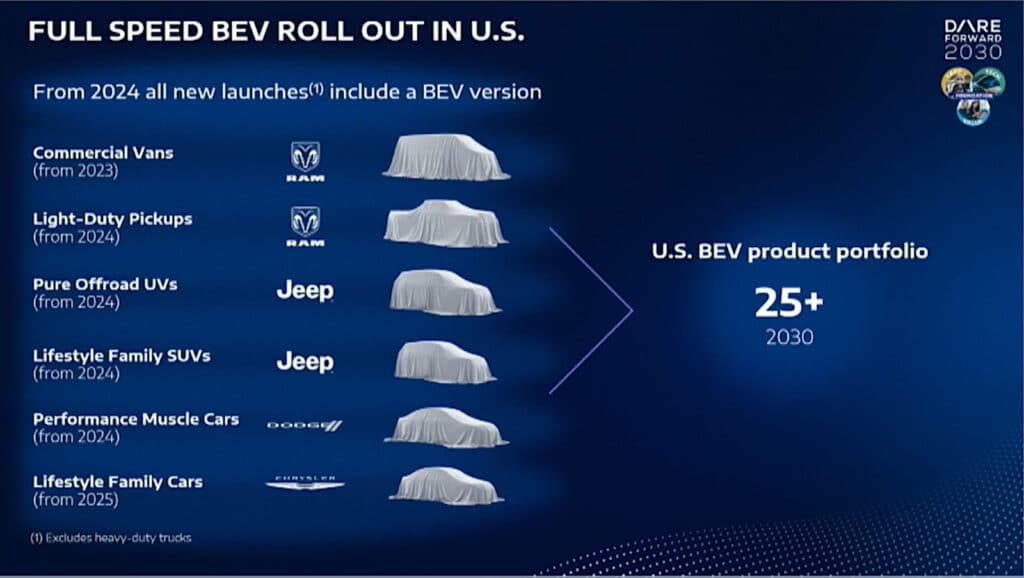With new vehicle prices running at record levels and shortages and inflation threatening to push sticker prices even higher, there are signs some potential buyers are being pushed out of the market, Stellantis CEO Carlos Tavares said Friday.

The average transaction price of a new vehicle has been running north of $45,000 in recent months and one recent study found that more than eight out of 10 buyers are paying over MSRP. And the pressures behind rising costs aren’t easing up, the Portugese-born executive said during a Zoom call with a small group of reporters.
“I am very concerned about the effect of affordability,” said Tavares, warning it is “becoming much more of an issue as inflationary pressures escalate.
During an hourlong roundtable, he cited a variety of factors, starting with the ongoing shortage of semiconductor chips that has resulted in extended, industrywide production cuts that, in turn, has led to severe dealer inventory shortages. According to J.D. Power, there are barely 1 million vehicles on showroom lots, barely a third of what’s normal this time of year.
Changes across the industry
What had long been a buyer’s market has shifted into a seller’s market, the CEO noted. And, industry data shows, it has resulted in a sharp decline in incentives.

But there are other factors at work, including fast-rising raw material costs, starting with steel. Indeed, commodity prices, in general, have been rising fast during the last several years, and that’s only been accelerated by the war in Ukraine.
Aluminum has jumped from a low of $2,554 per ton in November to nearly $3,500 this week. Nickel, which bottomed out around $17,750 late last autumn, is now trading for as much as $26,000 a ton. And palladium — a critical element in catalytic converters — has gone from just under $1,600 an ounce as recently as mid-December to more than $2,700.
Earlier this week, Stellantis staged a global webcast to discuss its revised business strategy, laying out plans through 2030. Among other things, Tavares outlined a significant expansion of the automaker’s EV program which will see it switch entirely to battery-electric vehicles in Europe by 2030. It plans to have all-electric models account for 50% of its sales in the U.S. by then.
But Tavares stressed that, at least for the near to midterm, EVs will cost more than comparable, gas-powered models. And carmakers like Stellantis will have to find ways to cut costs quickly because they won’t be able to pass those increases on to consumers.
If they did, he explained, “the middle classes would not be able to buy new cars.”
Finding ways to make EVs affordable

The Euro-American automaker is looking at a variety of ways to bring down EV costs, among other things looking at its marketing and distribution system which accounts for about 30% of the price of a new vehicle. One of the challenges will be to work around the franchise laws that vary from state to state and country to country.
During his Friday afternoon roundtable, Tavares noted the steps Stellantis is taking to work with its employees in Ukraine, while donating 1 million euros to help address the refugee crisis the war has created.
On the business side, he acknowledged his concerns about what the war could mean for his company — and the industry as a whole. Stellantis had to shut down operations in both Ukraine and Russia, and it isn’t clear when — or if — its plants will get back to work.
That has caused “no disruptions so far” to production outside the two warring nations, but the supply pipeline “is quite long,” he cautioned, and it could take “days, if not weeks” to fully recognize the impact all the way down to second- and third-tier suppliers.
The danger is that the situation could add to ongoing shortages while driving up commodity prices even more in the months ahead.








I don’t understand why we’re not seeing a big push by car manufactories pushing EV’s now with gas being so high. Think of all the great commercials they could be making.
When you’re selling cars as fast as you can make them, why waste money on advertising at all? Hell, people are actually buying Chevys.
““I am very concerned about the effect of affordability,” said Tavares”. Who says automotive CEOs are out of touch with the customer? Hell, I was out of the new car market 5 years ago.